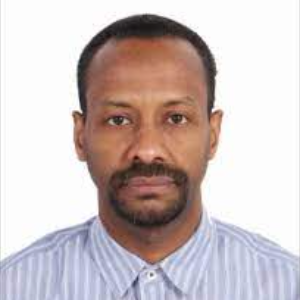Title : Simulation based procedural skill training, An update
Abstract:
The current shift towards outcome-based training requires the trainee to achieve a level of competency before graduating from training program and performing procedures on patients. Competence is “the minimal level of skill, knowledge and/or expertise derived through training and experience, required to safely and proficiently perform a task or procedure”. Outcome-based training entitles that progression on the training program is determined on trainee’s objectively assessed performance and trainees have to demonstrate specific pre-defined performance benchmarks to progress through training. Traditionally, medical education articulates on the fact that trainees perform procedural skills on live patients under graded level of supervision until competence is achieved. “See one, do one, teach one” is no more valid and there are well-recognized problems with this way of training. Patients’ safety may be compromised with increasing incidence of high profile medical errors. Training is inconsistent and trainees may not achieve the required number of patients due to reduced training hours resulting from newly implemented working patterns i.e. European Working Time Directives. There is also subjectivity in the trainees’ assessment process. The introductions of minimally invasive surgery and image-guided procedures have also forced training bodies to consider new approaches to training. To overcome the impediments to procedural skills training and to bridge the gap, simulation has been proposed as part of the solution. Simulation provides realistic situations where trainees can rehearse procedural skills in a relaxed environment without endangering patients. Deliberate practice with feedback in a simulated environment has been reported to accelerate the rate of skill acquisition, facilitate the transfer to clinical practice, reduce stress and increase self-confidence in decision-making. A concept of “pre-patient training” for procedural skills training was well studied in literature. This comprises three components: cognitive knowledge; instructions in the basic, generic and fundamental elements of the procedure (feedback), and an opportunity to practice performing the procedure in simulation-based benchmarks (deliberate practice). The whole point of training is to improve performance, make performance consistent and reduce errors. One of the major values of simulation training is that it allows the trainee to make mistakes in a consequence-free, stress-free environment, before they ever perform that procedure on a patient. Simulation works best when it is integrated in a carefully designed curriculum. Metrics are the building blocks of a procedure and should unambiguously characterize important aspects of procedure or skill performance. They are developed from a task deconstruction of the procedure or skill to be learned. Metric-based performance characterization can be used to establish a benchmark (i.e., a level of proficiency) which trainees must demonstrate before training progression. Prospective, randomized and blinded clinical studies have shown that trainees who acquired their skills to a level of proficiency on a simulator in the skills laboratory perform significantly better in vivo in comparison to their traditionally trained counterparts.
Audience Take Away Notes:
- The landscape of medical education is moving from time-based to outcome-based training.
- To overcome the many problems of traditional medical education, training bodies have to consider new approaches to training.
- Simulation provides realistic platforms where trainees can rehearse skill training in a stress-free environment.
- Simulation works best when it is integrated in a carefully designed curriculum



